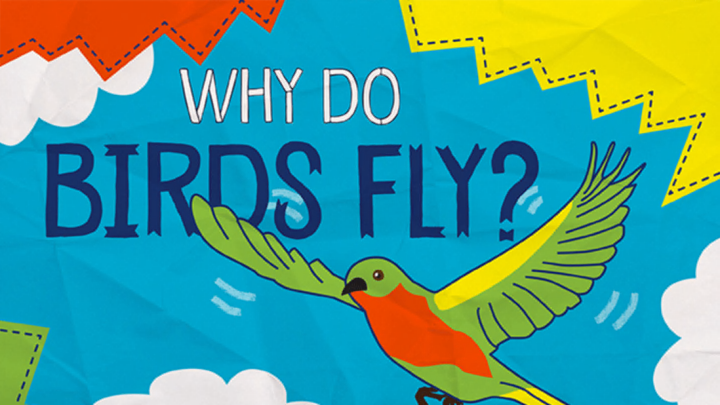WHY? is our attempt to answer all the questions every little kid asks. Have a question? Send it to why@mentalfloss.com.
Bird bodies are made to fly. They have light bones, strong legs, and specially shaped wings. Flying helps birds get away from animals that want to eat them, and makes them better hunters, too. Flying also helps them travel from cold places to warm places, called migration (my-GRAY-shun).
Let’s talk about aerodynamics (air-oh-die-NAM-icks). That’s the science of how air moves around things. It helps explain how birds fly. A bird uses its legs to push off the ground into the air. That’s called thrust. It flaps its wings to stay in the air. That’s called lift. When you put thrust and lift together, a bird flies. Its wings also have a curved shape, like an upside-down spoon. This shape helps the air move above and below the wings and keep the bird in the air. Birds’ feathers also help them fly. Air rushes through the feathers, creating more lift.
Birds don’t always have to flap their wings to fly. Once they’re up high in the sky, they can also glide, which is kind of like getting a free ride on the air. They only have to flap their wings once in a while. They can also let a jet of air push them up even higher, to the tops of really tall trees. That’s called soaring. Different birds can fly in different ways. Sea birds can dive really fast into the ocean to catch fish. Hummingbirds can flap their wings so fast all you see is a blur. Every time you ride in an airplane, you can thank birds for showing humans how to fly.
For further reading about how birds stay in the sky, visit Science Learning. Did you know that some birds can't fly at all? Learn more about flightless birds like the penguin, ostrich, and cassowary.
